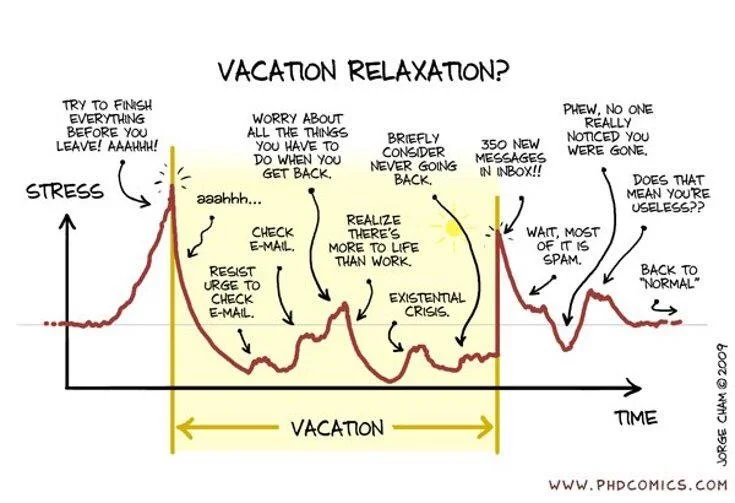Tea, Time, and Tiny Rebellions — The Courage of Slowing Down
There’s a particular kind of courage that never makes it into the history books. It doesn’t charge across battlefields, doesn’t plant flags, doesn’t even post on social media. It’s the courage of saying, “No, I don’t think I will check my emails just yet.” The quiet defiance of putting the kettle on instead.
Somewhere between the industrial revolution and the smartphone notification, we decided that the highest human virtue was productivity. Busyness became the new faith — complete with its own rituals and sins. To be idle is heretical; to take a long lunch, almost criminal. And yet, there’s something faintly ridiculous about the modern spectacle of a species that once built cathedrals is now proudly colour-coding an online calendar.
Tea, that most British of antidotes, remains one of our last surviving acts of rebellion. The world can rage, meetings can spiral, inboxes can overflow — but for those five sacred minutes, we become monks of the mundane. There is ceremony in the stirring, transcendence in the steam. Even the humble biscuit dunk becomes a statement of intent: I will not be rushed.
Some days, the tyranny of “busy” isn’t some abstract concept you read about in a self-help book. No, it arrives as a peculiar, creeping fog of expectation: questions popping up before you’ve even formulated the answer, requests that arrive with the urgency of a fire alarm yet somehow carry the delicacy of a sledgehammer.
By five o’clock, your brain feels like an overstuffed filing cabinet, drawers jammed with half-answered emails and thoughts you can no longer summon, and there’s that peculiar dread that settles in the pit of your stomach — the Monday dread, a familiar shadow stretching across the weekend, like it’s already planning its welcome-back party.
It’s a subtle, almost absurd burnout: not from doing too little, nor from doing one thing badly, but from doing too much in the half-seconds the world assumes you have, all before anyone has even noticed you exist. And yet, somehow, the world expects you to arrive fresh and alert tomorrow, as if five o’clock were merely a suggestion rather than a declaration of surrender.
And yet, even amid the endless questions, the pre-emptive requests, the Monday dread that lingers like a mischievous ghost, there is a quiet reassurance to be found. Not a sudden solution, not a miraculous inbox-free day — but a reminder that, like hope itself, surviving the firestorm is a maintenance job.
You learn, slowly, that taking even a single, deliberate pause — a deep breath, a glance out of the window, a proper cup of tea — is enough to reset the compass. It doesn’t fix everything, of course; nothing ever does. But it does make the day navigable, and that is a kind of victory worth acknowledging.
It’s funny how often mindfulness is sold back to us, wrapped in app subscriptions and bamboo fonts, when all we really needed was the same teapot our grandparents used. They, after all, lived through things far more demanding than a slow Wi-Fi signal. Their calm wasn’t branded as “wellness” — it was just common sense and a sturdy chair by the window.
I sometimes think slowing down isn’t about laziness but recovery — a pit stop for the mind. Every time we pause long enough to breathe, to laugh, or to let our thoughts wander somewhere entirely unprofitable, we are repairing something the modern world quietly breaks.
And humour, in its own way, is part of that resistance. A well-timed joke can puncture the balloon of self-importance that “busy culture” thrives on. It’s the wink across the table, the knowing shrug that says, Yes, life is absurd — and that’s precisely why it’s beautiful.
So perhaps what we need isn’t more time management, but time respect. To treat our hours not as resources to be mined but as companions to be cherished. To allow the day to unfold at its own pace, like a good story — not something to be hacked through, but something to be savoured, one page, one sip, one smile at a time.
Because in the end, the rebellion we most need might be the gentlest one of all:
To put the world on hold for the length of a cup of tea.
Last time, in The Maintenance of Hope, we talked about keeping the engine of optimism alive — how hope isn’t a mood, but a maintenance job. This, perhaps, is part of the same work: learning when to ease off the throttle. Hope, after all, isn’t sustained by motion alone. It needs stillness too — those small, quiet interludes where we refill the tank and remember who we are when no one’s demanding anything of us.
If hope was the spark, then slowing down is the breath between fires. Together, they make the journey endurable — and, with luck, rather enjoyable too.
